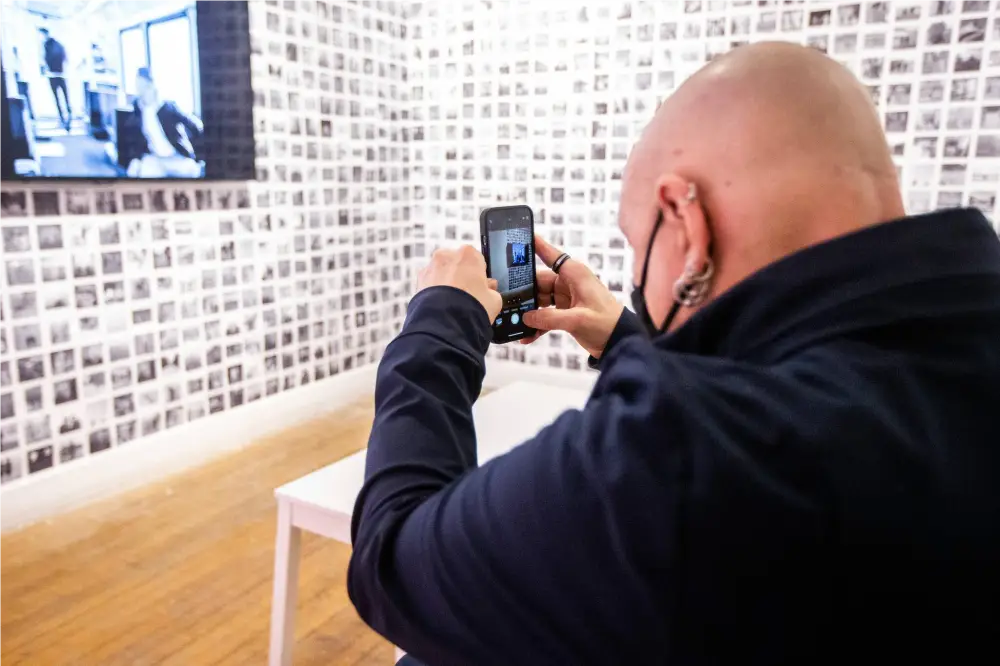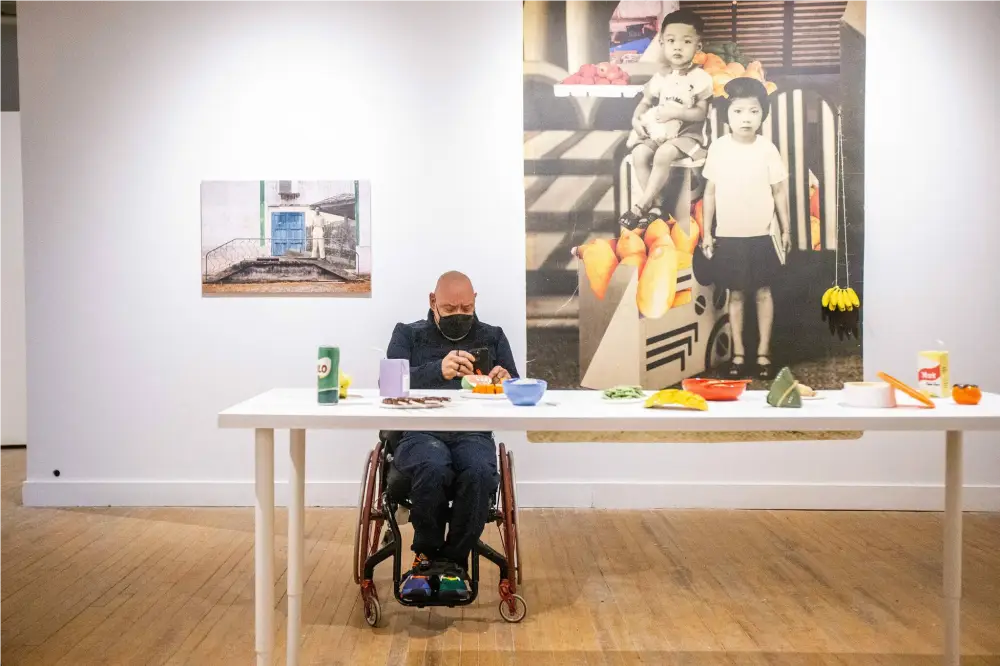When Peter Tonge is assessing the accessibility of a space, he likes to go in cold. He refrains from looking up available accommodations and avoids Googling the layout. By arriving without preconceptions, he can experience all the potential barriers first-hand.
Tonge is the project lead for Arts AccessAbility Network Manitoba’s venue audit — a wide-ranging assessment of the accessibility of local concert halls, theatres and galleries that is now available online for patrons and artists.
“It’s really sort of opened my eyes to lots of things,” Tonge says of the process of auditing three to four venues a week for the last several months. The Free Press tagged along during a recent survey of Platform Centre for Photographic and Digital Art.

Peter Tonge, Arts Accessibility Network of Manitoba main auditor, assesses the washrooms at the Platform Centre.
The visual art gallery is located on the first floor of the Artspace building on Arthur Street. Tonge, a wheelchair user, takes the power lift up to the main lobby and checks out the shared washrooms down the hall before rolling into Platform.
He snaps photos while moving through the small exhibit spaces, storage area and employee office; the images will help inform the 175-point audit that will be posted to the Arts AccessAbility online database (aanm.ca).
The audit was created through a lengthy consultation process with Manitoba’s disability community and includes considerations for artists and attendees who identify as disabled, deaf, blind or neurodiverse. Accessibility in public spaces and behind the scenes is equally important.
“The biggest thing we’re seeing — and, honestly, we’re not that surprised by it — is for performance venues, they’re doing a better job front-of-house, but they still haven’t thought about back-of-house,” Tonge says, describing greenrooms and stages that can only be accessed by stairs.
“Part of the impetus of doing this is trying to get organizations more in the mindset of expecting performers to have disabilities.
“Twenty-five per cent of the population in Manitoba has some form of a disability,” he adds. “Yet, when we show up, everybody’s surprised.”

Tonge, assessing access at the Platform Centre for Photographic and Digital Art, says the goal is to offer venues and patrons information to make their own decisions.
Platform’s administrative director, Tayler Buss, follows along during the roughly 15-minute visit. Arts AccessAbility conducts audits free of charge thanks to grant funding, and the gallery was keen to participate.
“I (think it’s) great to know what we can improve on and to have a second opinion on what we can do to make this space more accessible,” Buss says, adding that the gallery has a safer-spaces policy that addresses ableism and offers daily low-sensory hours, during which the gallery lights and audio components are turned down.
So far, Arts AccessAbility has published audits for more than a dozen venues in Winnipeg with plans to assess out-of-town venues in the future. Arts organizations have largely welcomed the scrutiny.
“I was pleasantly surprised,” says Jenel Shaw, executive director of Arts AccessAbility. “(It’s) important to let the community know not just how you are accessible, but how you’re inaccessible.”
The organization is in the process of creating an anti-ableist workshop, which will be made available to auditees. Lack of staff training in regards to accessibility has been another common finding.
For Tonge, the purpose of the audit is to highlight opportunities, not shortcomings.

‘It’s really sort of opened my eyes to lots of things,’ Tonge says of his gig auditing venues.
“We’re not trying to give a positive check mark or a negative check mark,” he says. “We’re trying to provide people with information so they can decide what’s best for them.”
eva.wasney@winnipegfreepress.com
